Guppies are a popular and hardy breed of fish, but even they are not immune to death. Many guppies die due to a variety of factors, from poor water quality to disease. It is important to understand why guppies die in order to prevent it from happening in the future. Knowing what to look out for and what preventative measures to take can help keep your guppies healthy and safe.
This article will explore the most common causes of guppy death, as well as what steps to take to help ensure the health of your guppies. By the end of this article, you will have a better understanding of why guppies die and how to prevent it!
Common Reasons Why Guppies Die
Despite their reputation for being hardy fish, guppies are still susceptible to death due to various factors. Some of the most common include:
Inconsistent Tank Maintenance
By far, the most common cause of guppy death is poor tank maintenance. This can include failing to regularly clean the tank, not changing the water frequently enough, or adding too many fish to the tank at once. Many fishkeepers assume that their guppies will be fine in an unclean tank. Unfortunately, this is a mistake that can cost your guppies their lives.
Guppies are very sensitive to water quality. Everything from the nitrate levels of your tank to the presence of a dirty filter can wreak havoc on your guppies’ health, causing the sudden, but not unexpected presence of dead fish in your tank. It is best to keep ammonia levels as low as possible – even 2 ppm of ammonia can be dangerous for guppies.
The Solution
Regular water changes are an essential component of proper guppy care. This helps to keep the water quality at a safe level, while also removing any waste that has built up in the tank. We recommend performing a 25-50% water change at least once a week, making sure to use only fresh, dechlorinated water from a reliable water source.
Most people opt to use tap water from a municipal source – simply because these are the most accessible. If you choose to do this, we recommend using a water conditioner to remove any chlorine, chloramine, and heavy metals. A reverse osmosis or deionization filter can also be used to remove impurities from tap water.
Above all, a filter is your best line of defense for keeping your tank clean and healthy. A good filter removes uneaten food and fish waste from your tank, thus preventing ammonia levels from spiking. Be sure to choose a filter rated for at least 4 times the volume of your tank – so if you have a 10-gallon tank, opt for a filter that can turn over at least 40 gallons of water per hour.
Illness and Disease
Health issues are another common cause of guppy death. Common diseases such as ich, fin rot, velvet, and bacterial infections can lead to sick guppy fish that eventually die. Many of these illnesses have symptoms that are easy to miss. Unfortunately, this means that many fish keepers are unaware of the signs of these illnesses until it is too late.
Given the myriad of illnesses that can affect your guppies, it is no surprise that they are yet another common cause of death. Particularly infectious diseases, such as ich and velvet, can cause a rapid decline in your guppies’ health if left untreated. Fortunately, there are ways to prevent and treat these illnesses.
The Solution
Most common guppy diseases can be prevented by keeping your tank clean and providing the optimal water parameters for guppies. Illnesses can also take hold in fish that are already stressed out, or have a compromised immune system. You can help prevent this by avoiding overstocking your tank and providing plenty of hiding spaces for the fish.
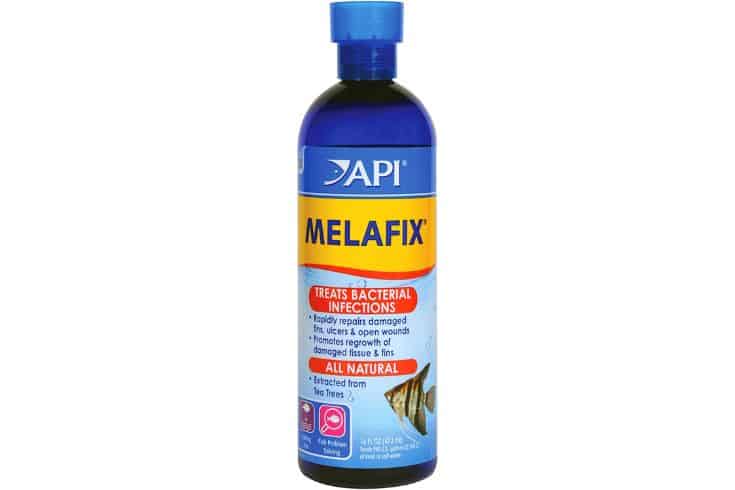
Another helpful tip is to quarantine any new fish before adding them to your tank. This gives you the opportunity to spot any signs of illness early on, thus allowing you to treat the sick fish with the right medication before it passes on to other fish in your tank. Do the same with any live food you feed your guppies, such as brine shrimp or daphnia.
Finally, make sure you have the necessary medications on hand to treat any potential illnesses. We recommend researching different treatments for the most common guppy diseases, as well as stocking up on antibiotics like melafix and aquarium salt just in case. Of course, you can always consult a veterinarian or specialist if you are unsure of what medications to use.
Inadequate Nutrition
Nutrition plays an important role in the health of any fish. Guppies need a balanced diet that consists of both plant-based and animal-based food sources. If your guppies are not receiving enough nutrients, it can lead to malnutrition and eventually cause death. Poor nutrition can also lead to weakened immune systems, making your guppies more prone to illness and disease.
Of course, inadequate nutrition can also be caused by a lack of food intake. In other words, you may feed your guppies, but one or two fish may eat more than their fair share. Sometimes, your guppies may simply be too meek to compete for food. Regardless of the cause, this will lead to some of your guppies not getting enough food – thus resulting in their death.
The Solution
It is important to provide your guppies with a varied diet that consists of both live food like brine shrimp and mosquito larvae, as well as dry fish food such as flakes and pellets. You can even supplement their diets with plant-based supplements such as spirulina tablets and algae wafers. Doing so ensures that your guppies are receiving the essential vitamins and minerals they need.
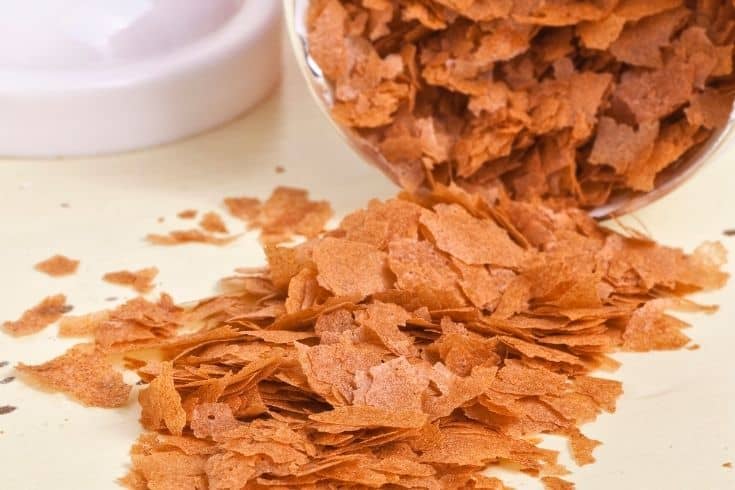
It is also important to feed your guppies the right amount. Aim to feed your guppies twice a day, with each meal containing only enough food that your fish can consume in 2 minutes. Avoid overfeeding, as this can cause water quality issues and contribute to the growth of algae in your tank.
Finally, ensure that none of your guppies are being outcompeted for food. These are shy fish, and when housed in a community tank, they can be bullied away from their meals by more aggressive fish. If your guppies seem to display a lack of appetite or are losing weight, try feeding your guppies separately or relocating the more aggressive fish.
Inappropriate Water Temperature
As is the case with most tropical fish, guppies require warm water to thrive. The ideal temperature range for guppies is between 72°F and 82°F (22°C to 28°C), with most guppies preferring warmer water on the upper end of this range. Cold water can lead to the death of guppies – even hardy fish need proper tank setups to survive.
Note: Although other water parameters such as pH and hardness are important to consider, it is the water temperature that has the biggest impact on guppies. It is also the easiest to monitor and control, thus making it the first parameter to consider when setting up your tank.
The Solution
The easiest and most effective way to maintain an ideal water temperature for guppies is to use an aquarium heater. If you’re making a significant temperature adjustment, do so over the course of a few days. Make sure that the change in temperature doesn’t result in a lack of oxygen – warmer water tends to hold less oxygen.
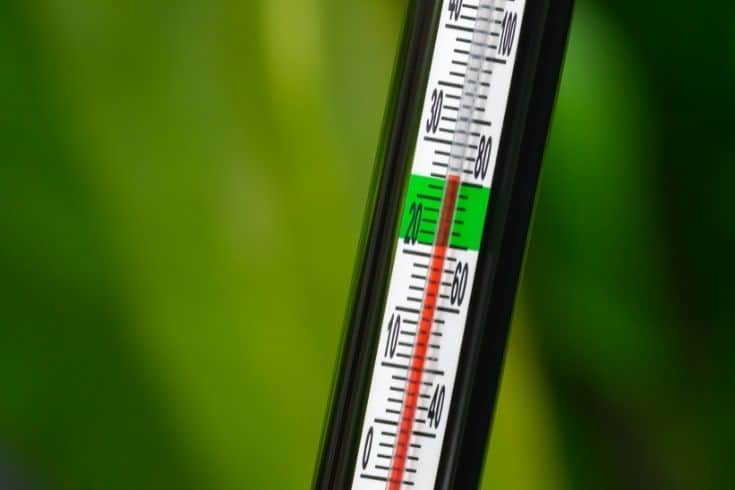
The tradeoff between oxygen levels and temperature should be taken into account when determining the ideal temperature for your specific guppy population. If you’re caring for weaker guppies that are prone to stress and illness, it’s best to err on the side of caution and keep the water temperature at the lower end of the ideal range,
On the other hand, healthy adult guppies are more likely to breed when the water is on the warmer side, so it’s important to adjust the temperature accordingly. If your guppies have different needs, consider placing them in separate tanks. This will allow you to maintain the ideal temperature for each fish without compromising the others.
Genetic Factors
The ubiquity of guppies in pet stores can mask the fact that they are not naturally occurring. The guppies you see on store shelves have been selectively bred over many generations, resulting in various color and fin mutations. Unfortunately, inbreeding also occurs, resulting in poor genetics that can lead to health issues and shorter lifespans.
Some genetic defects are visible – think albino guppies, or a deformed guppy with a crooked spine. However, other genetic defects such as weakened immune systems or genetic diseases are not as easy to spot. It may take an untimely death or end to a guppy’s natural lifecycle before you realize that the guppy had been suffering from a genetic defect.
The Solution
As much as we all wish that guppies from pet stores are healthy and thriving, this isn’t always the case. The best thing to do is to check the store’s reputation, or buy from a breeder with a good track record. If you’re dealing with random pet store guppies, you’ll need to keep a keen eye out for telltale signs of poor health or genetic defects.
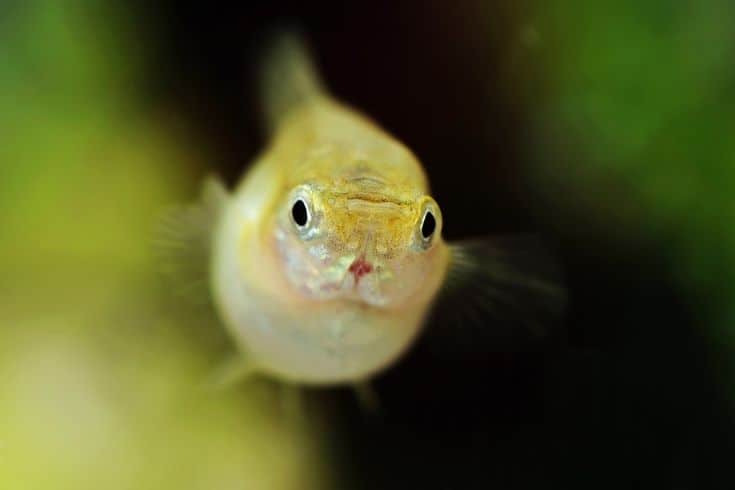
Quarantining new guppies before introducing them to your tank is yet another great way to get a better look at the fish, as well as identify any genetic health issues that may be present. A quarantine tank should be adequately heated and free of any chemicals or other stressors, so it’s important to set it up properly before adding guppies.
If at all possible, avoid buying guppies from pet stores, or from an unknown source. There are many specialized guppy breeders out there that are passionate about their craft and take great care to ensure that the guppies they sell are healthy and robust. These professionals understand the importance of providing quality stock and are usually very knowledgeable about guppy care.
Overcrowded Tanks
Last but not least, overcrowded tanks can potentially lead to a guppy’s premature death. A tank full of colorful guppies may seem like a beautiful sight – and it is! But stuffing your tank to the brim with guppies can have serious consequences. Not only will it cause your fish to feel stressed out, it will also quickly degrade water quality and reduce oxygen levels.
In some cases, a tank starts out as a habitat for just a handful of guppies, but eventually, the population grows out of control. This often happens when there’s no plan to limit guppy reproduction – many people aren’t aware that guppies can breed at a dizzying rate. Unfortunately, this also quickly leads to problems with overcrowding and water quality.
The Solution
There are two key components to avoiding overcrowded tanks and keeping guppies healthy. First, you should stock your tank according to the size of your aquarium and the guppies’ needs. Figure out how many guppies should live in your tank, and never exceed that number. Err on the side of understocking, as it’s better to have a few healthy guppies than many stressed-out ones.
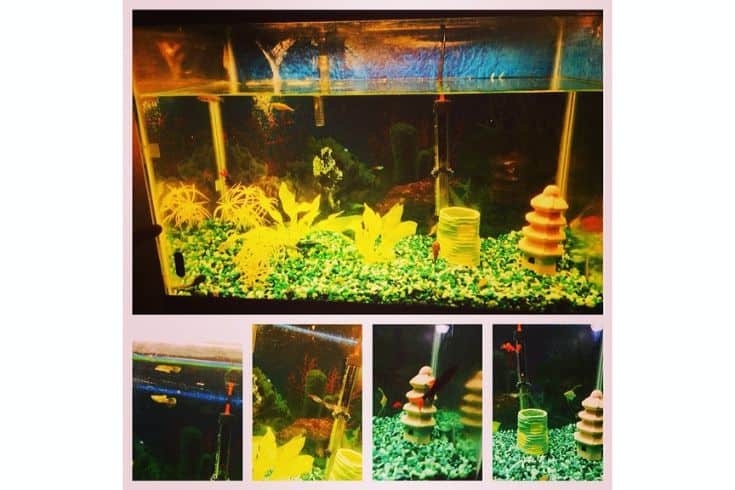
Second, you should make sure to limit guppy reproduction if possible. The fact that guppies breed so easily is part of their appeal, but the responsible thing to do is to keep the population of your tank under control. If you don’t want to deal with an abundance of fry, consider keeping male and female guppies in separate tanks.
It takes a lot of planning and resources to ensure that your guppies are healthy and happy, but when done properly, you’ll be rewarded with a thriving aquarium. Remember to account for the tank décor and accessories you have in place, as these can displace water and reduce the number of guppies that can safely inhabit it.
Signs of A Dying Guppy
In spite of our best efforts, our guppies may still succumb to the occasional illness or disorder. Knowing the signs of a dying guppy is key to recognizing when something isn’t right and taking appropriate action. Here are a few telltale signs that could indicate a guppy’s decline:
Hiding
Every guppy likes to dart between aquatic plants and hide in the corners of their tank, but if your guppy begins to hide more frequently or appears listless when they come out, it could be a sign that they’re unwell.
Guppies that hide usually do so because they are in a weakened state. Evolutionarily speaking, guppies hide to avoid predation, and an increased need for hiding could be an indicator that your guppy is unwell.
Of course, every guppy has a different personality, so it may be difficult to tell the difference between a naturally shy guppy and one hiding due to illness. Establishing a baseline for “normal” behavior may be useful. Figure out what “normal” looks like for each of your pets, and pay extra attention when something seems amiss.
Change in Appetite
A change in appetite is another telltale sign that something may be wrong with your guppy. Healthy guppies typically have robust appetites and will readily eat flake food, pellets, and other treats. However, if your guppy is ill, it may not be interested in eating at all.
Most changes in appetite are relatively harmless and may be due to the guppy’s natural preference for a certain type of food. But if your guppy’s appetite doesn’t improve after a few days, it may be a sign of a more serious health issue.
Unusual Swimming Patterns
Guppies are natural swimmers, and they typically move around their tank with enthusiasm. But when it comes to ill guppies, you may notice a change in their swimming patterns. A sick guppy may appear to be struggling or gasping for air, and they may even drift around the tank aimlessly. In some cases, a guppy may even appear to be paralyzed.
All of these are signs that your guppy needs help. Rather than waiting for the situation to worsen, it’s best to act quickly. Take steps to improve your guppy’s environment and check in with a veterinarian if necessary. If euthanasia is the best option, consult with a professional to learn the most humane way of doing it.
What To Do With A Dead Guppy
If your guppy, unfortunately, passes away, the best thing to do is remove it from the tank as soon as possible. This will help prevent diseases from spreading and minimize stress to the other tank inhabitants. A dead fish rots quickly and releases toxins into the water, so it’s important to act quickly. Otherwise, you may find yourself dealing with a much bigger problem.
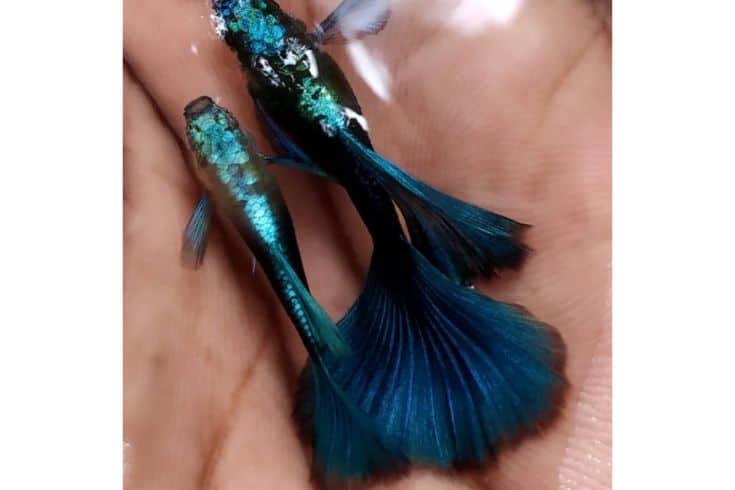
After removing the dead guppy, you can either bury it or flush it down the toilet. Under no circumstances should you feed it to the other fish, as this could result in disease and further loss of life. Guppies that die of contagious diseases will need to be disposed of in a specific way, so make sure you follow the instructions provided by your vet.
Finally, after disposing of the fish, you’ll need to disinfect the tank. This can be done by adding a quarter cup of bleach to five gallons of water and using it to rinse the tank, decorations, and any other items that have come in contact with the deceased guppy. Make sure to rinse thoroughly, as even small traces of bleach can be toxic to aquatic life.
After your tank has been disinfected, it’s time to look at potential causes of death and take steps to prevent any further losses. Educate yourself on the common causes of guppy death, such as water quality and overcrowding, and make sure to address any potential issues.
Conclusion
Guppies are wonderful pets, but they do require a certain degree of care if we want to ensure they stay healthy and live long lives. Pay attention to the signs of a dying guppy and take action when you notice something is off. With a little bit of effort and knowledge, you can ensure that your guppy lives a happy and healthy life!
We hope that you found this article helpful and that it has given you the knowledge to know why, when, and how your guppies may be dying. If you know someone else who is having trouble with their guppies, consider sharing this article with them. Good luck, and thanks for reading!
